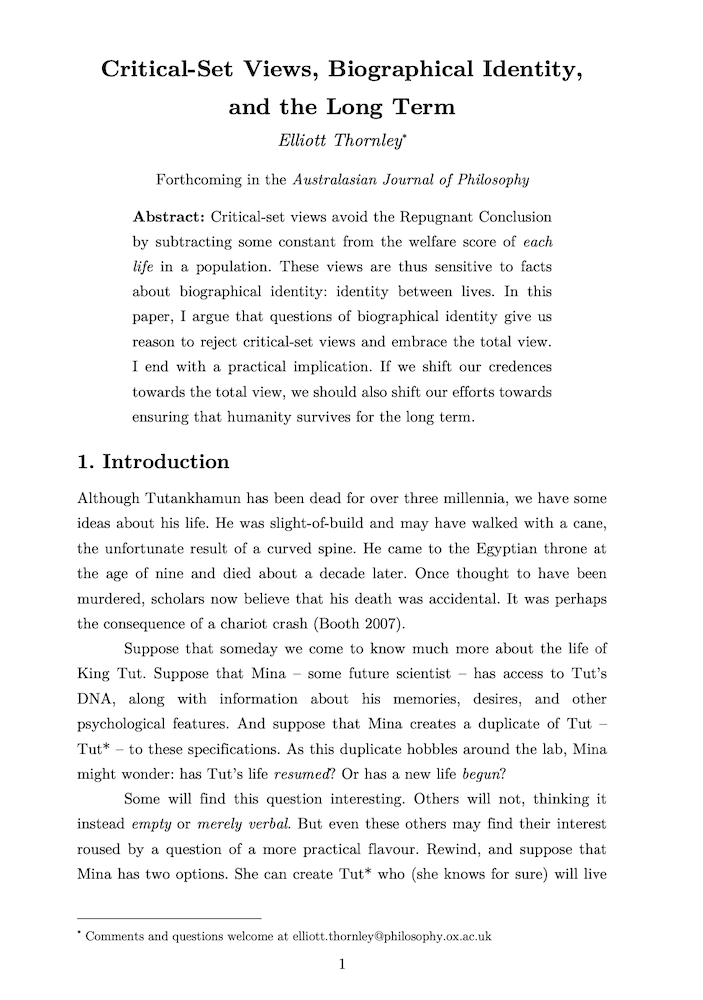Critical-set views, biographical identity, and the long term
Elliott Thornley (Global Priorities Institute, University of Oxford)
GPI Working Paper No. 7-2024, forthcoming in the Australasian Journal of Philosophy
Critical-set views avoid the Repugnant Conclusion by subtracting some constant from the welfare score of each life in a population. These views are thus sensitive to facts about biographical identity: identity between lives. In this paper, I argue that questions of biographical identity give us reason to reject critical-set views and embrace the total view. I end with a practical implication. If we shift our credences towards the total view, we should also shift our efforts towards ensuring that humanity survives for the long term.
Other working papers
Quadratic Funding with Incomplete Information – Luis M. V. Freitas (Global Priorities Institute, University of Oxford) and Wilfredo L. Maldonado (University of Sao Paulo)
Quadratic funding is a public good provision mechanism that satisfies desirable theoretical properties, such as efficiency under complete information, and has been gaining popularity in practical applications. We evaluate this mechanism in a setting of incomplete information regarding individual preferences, and show that this result only holds under knife-edge conditions. We also estimate the inefficiency of the mechanism in a variety of settings and show, in particular, that inefficiency increases…
The long-run relationship between per capita incomes and population size – Maya Eden (University of Zurich) and Kevin Kuruc (Population Wellbeing Initiative, University of Texas at Austin)
The relationship between the human population size and per capita incomes has long been debated. Two competing forces feature prominently in these discussions. On the one hand, a larger population means that limited natural resources must be shared among more people. On the other hand, more people means more innovation and faster technological progress, other things equal. We study a model that features both of these channels. A calibration suggests that, in the long run, (marginal) increases in population would…
Is In-kind Kinder than Cash? The Impact of Money vs Food Aid on Social Emotions and Aid Take-up – Samantha Kassirer, Ata Jami, & Maryam Kouchaki (Northwestern University)
There has been widespread endorsement from the academic and philanthropic communities on the new model of giving cash to those in need. Yet the recipient’s perspective has mostly been ignored. The present research explores how food-insecure individuals feel and respond when offered either monetary or food aid from a charity. Our results reveal that individuals are less likely to accept money than food aid from charity because receiving money feels relatively more shameful and relatively less socially positive. Since many…

